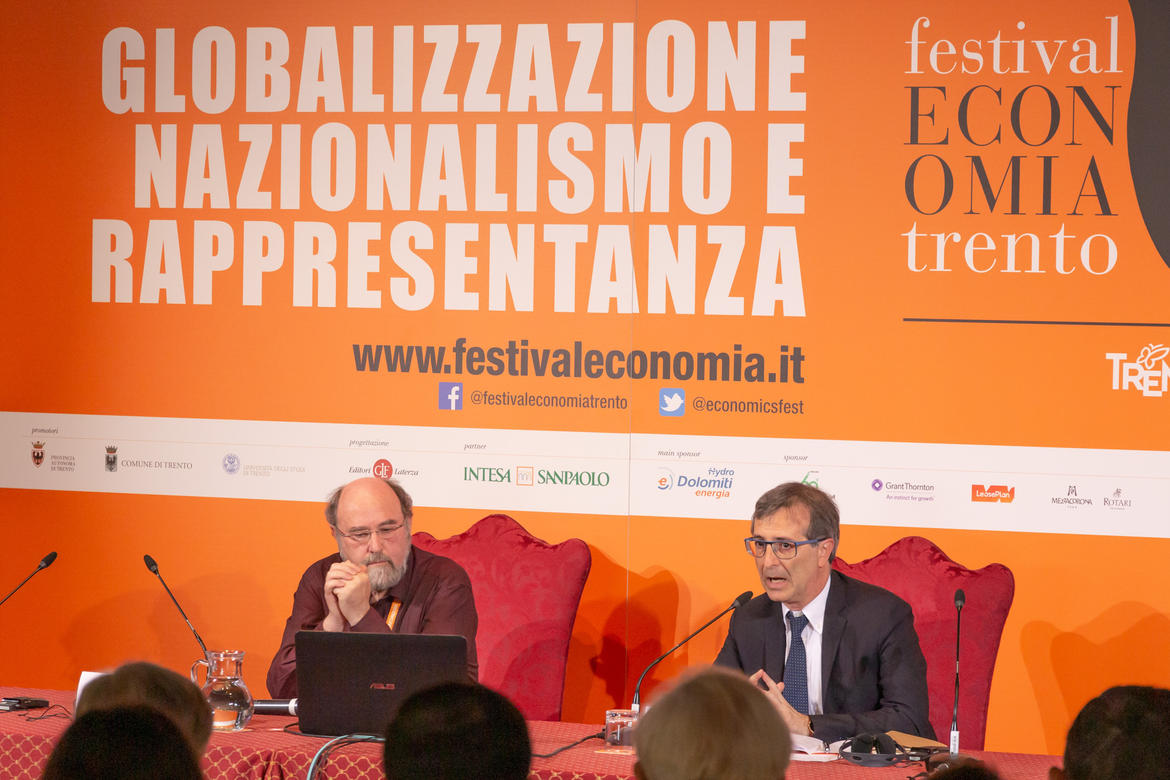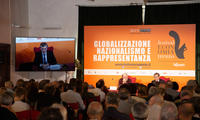
With a large crowd on hand at Palazzo Geremia, David Leiser kicked off the final day of the Trento Economics Festival with a discussion on the psychological gap between the general public's misunderstanding of economics and the viewpoints of economists.
While public misunderstanding on many domains is generally quite poor, Leiser says economics is a field that people have extra difficulty comprehending. He points to the mismatch between our cognitive endowment and the principles of economic thought, as well as the "subject" and "object" of economics.
On cognitive endowment, he says that we weren't intended to comprehend complex 21st century economic systems. While our natural cognitive capabilities are advanced in social skills, mechanics (repairing things), and biology (staying healthy), the scope of the human mind is still quite limited. Using the example of the "beam of intelligence", he explained that our knowledge can only reach a certain depth and width.
Following this, he transitioned to some public policy examples that supported his theory. People, including politicians, generally have a short sighted policy mindset because of this "beam of intelligence". They often bring good, positive ideas to the table, but fail to realize the broader consequences of their economic policy decisions. He cited U.S. Senator Kamala Harris' Rent Relief Act, explaining that it could lead to a massive loss in government subsidies, more demand while supply remained the same, and higher prices.
Leiser also touched on populist economic priorities and explained why some of them are also in line with this short-sighted mindset. Specifically, he referenced raising the minimum wag and lowering the retirement age. For minimum wage raises, Leiser argues that companies will seek cheaper labor. This leads to fewer 'minimum wage' paying jobs available. On lowering the retirement age, Leiser argues that it is a risky move for countries with an aging population, such as Italy. Today, the average person has .48 people as a dependent- usually either children or the elderly. In the next 20 or 30 years, that number is expected to rise to .87.
On the mismatch of economic objectification, Leiser says the public generally focuses on the individual, while economists always think about the aggregate. Economists are always looking at elements of the big picture, such as long term cycles, equilibrium, and indirect effects.
To conclude, Leiser emphasized the role of perception in economics. "People [including politicians] behave in their lights," he said. When economically naive people assume positions of power, their behavior will be reflected in public policy.
Website: https://2019.festivaleconomia.eu
Twitter: https://twitter.com/economicsfest
Facebook: https://www.facebook.com/festivaleconomiatrento
Instagram: https://www.instagram.com/festivaleconomia










